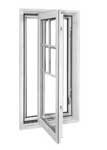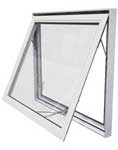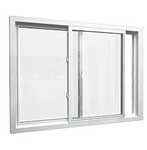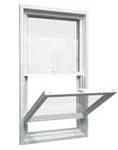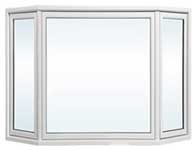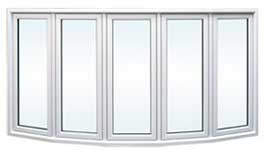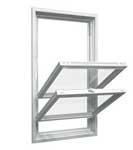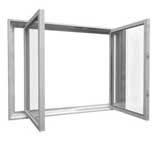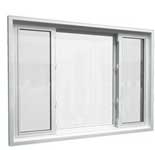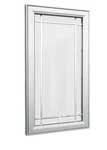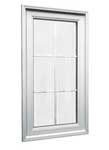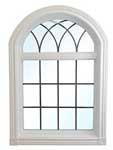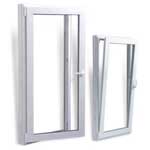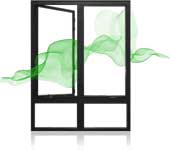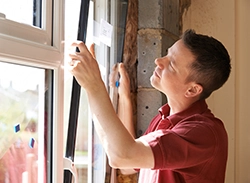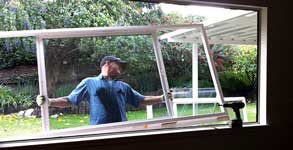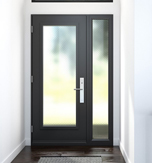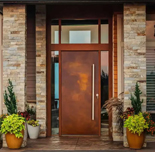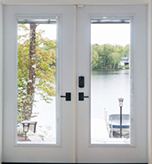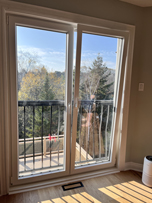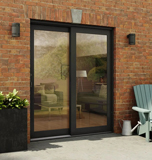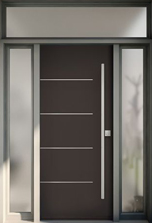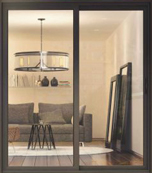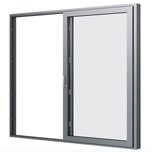We know there’s never really a good time of the year to replace your windows, but whether you plan to upgrade or are forced to replace old and broken windows, sometimes it’s unavoidable.
While the roof and the walls of your home make a pretty good case for themselves, the windows are one of the most critical parts of your house. They are responsible for natural light entering your home and ventilation. They also protect the interior of your home from the elements while allowing you to enjoy the view outside.
Often, being freed from the clutches of winter makes homeowners evaluate their homes to consider renovations or upgrades, and most will connect window replacements with warm, sunny weather. And who could blame them as having your home exposed to the freezing cold is not exactly inviting? It does come with its benefits, though.
So, what time of year should you replace windows? Read on to find out; some of the answers may surprise you.
Factors to Consider Before Replacing Windows
Before determining what is the best time of year to replace windows, let’s see what factors to consider.
Current Condition of Windows
Wear and Tear of Your Windows
There are many signs of window damage, some more obvious than others.
- Drafts and air leaks. Especially during winter, you can feel cold air leaking into the house, causing chilly drafts through gaps or cracks.
- Condensation and fogging. Condensation on your window or fog between the panes is a clear sign of a crack or gap allowing moisture to enter your window.
- Difficulty in opening or closing. If you have trouble opening or closing your window, it could be a sign of a warped or cracked frame or an issue with the opening system.
- Damaged frames and sashes. Your home settling or physical damage can lead to cracked frames and sashes that can destabilize your window and allow air, moisture or pests to enter your home.
- Cracked or broken glass. Unfortunately, the glass of your windows is prone to cracking or breaking due to hard impacts.
- Increased outside noise. If the insulation in your window is aging or there are cracks or gaps, you may hear more outside noise.
Energy Efficiency Issues
Many older windows have energy efficiency problems, whether older models with single-pane windows or cracked or warped frames allowing for cold air to seep in or make the interior of your home unbearably hot in summer.
Desired Improvements or Upgrades
Enhanced Insulation
One of the most significant benefits of new windows is their energy efficiency, which cannot be understated. Through technological advancements and better materials, new windows have vastly improved insulation and efficiency, which can significantly impact utility bills. Less heat transfer (losing heat in the winter or allowing heat into your home during summer) means that your furnace or air conditioning unit has to start less often, thus saving you money.
Noise Reduction
Improved technologies and the addition of panes to create double- and triple-pane windows have led to increased noise reduction capabilities that can considerably cut down the outside noise.
Aesthetics and Curb Appeal
While many think the siding or landscaping is responsible for a visitor’s first impression of your home, the windows play a significant role. It’s easy to underestimate the impact of new and updated windows on your home. Imagine a house with immaculate landscaping, a beautiful exterior and then outdated, peeling windows that look like they belong to a different decade than the rest of the house. New and updated windows can work wonders in refreshing the look of your whole home.
Understanding Seasonal Effects on Window Replacement
Pros and Cons of Replacing Windows in Different Seasons
Spring
While sometimes it may take a while for spring to take hold, it is the first season where many think of renovations. Replacing windows when it’s warm but not too warm has its benefits, especially if you plan to replace multiple windows. You will no longer have to deal with cold drafts entering your home and be protected from the summer heat.
And installing new windows before summer hits means you can enjoy energy savings by keeping your home cooler and protecting the interior from harmful UV rays. Modern windows from Eco Choice come with premium energy efficiency features, such as double and triple-pane windows, low-emissivity coatings and argon or krypton gas between the panes.
However, you might not be the only one thinking about getting an early start to renovations, as spring often is when demand for window replacements begins to spike. So if you want to take advantage of this season, you should do your planning during winter and book an appointment as soon as you can to ensure installer availability.
Summer
Summer is warm, often less rainy than spring, and you might have more time with school holidays. While all of this is true, unfortunately, the demand will be at its peak, which can lead to scheduling conflicts as the installers will also be at their busiest.

Another downside of summer is that it can get very hot and, depending on where you live, very humid, which can strain your AC and make your house unnecessarily hot. The summer heat can also lead to thunderstorms which can be an issue if you get caught out with a missing window.
Fall
If you want to avoid the rush, fall is an attractive alternative as, in many cases, the weather is still mostly lovely and warm, but the demand for window replacements is decreasing. Installer availability will likely be significantly better than during spring and summer, but the weather might be a potential cause for delays should heavy rains occur.
Also Read: 5 Reasons Why You Should Get a Window Replacement This Fall
Winter
At first thought, the cold winter months don’t sound like a good time to start replacing your windows, but they come with some distinct benefits. For starters, demand during the winter months is slow, so if you plan to realize your window replacement project during the cold season, you might experience a considerably shorter wait time between ordering your windows and their installation. Some companies may even offer competitive deals to attract customers.

The increased energy efficiency of new windows can save you some serious money during the winter months by effectively sealing in the heat and avoiding cold, uncomfortable drafts.
The biggest perceived downside of a winter installation is the cold entering your house and the low temperatures affecting the quality of the installation. But professional installers come prepared for this. Our installers will only replace one window at a time, seal off rooms to limit the airflow and cover flooring and furniture.
Climate Considerations For Window Replacements
Hot and Humid Climates
If you live in a hot and humid climate, you will want to avoid the summer months for window replacements. Not only will you avoid allowing hot air into your home, but the window installers will likely thank you as well.
As for window types, choose glass with a low U-factor (heat transfer rate from warm to cold areas) and a low emissivity (low-E) coating to reflect the sun, reduce glare and provide climate control. You can also check for a low SHGC (solar heat gains coefficient).
We also recommend vinyl frames as they keep the heat out in summer and are affordable and low maintenance.
Cold and Snowy Climates
For cold and snowy climates, it depends on how cold or snowy winter gets. If temperatures regularly drop below -20 degrees Celsius and you experience a lot of snow, it can be dangerous for the installers.
Just like for hot climates, we recommend choosing glass with a low U-factor (the heat transfer rate from warm to cold areas) but look out for a high SHGC (solar heat gains coefficient) that will help attract the sun’s heat.
Opting for triple-pane units also can help trap the heat inside the house due to the additional insulation layer.
Again, vinyl is an excellent option for the frame as it can withstand the cold well and has good U-values due to the air cavity inside the frame.
Mild and Moderate Climates
Mild and moderate climates generally give you the most significant window for window replacements, as you rarely have to worry about the bitter cold or sweltering heat.
They also give you the broadest range of options regarding window types, as you have slightly less to consider, but energy efficiency should still be at the top of your list.
Advantages and Disadvantages of Replacing Windows in Specific Seasons
Spring
Benefits
Spring has a higher chance of nice weather without the sweltering summer heat, making it an excellent choice of season for window replacement. It will prevent your home from losing too much energy to heating or cooling.
Challenges
Spring comes with two main challenges. One is that many homeowners want to get their renovation projects on the road as soon as possible, so demand for installers is rising, which makes planning ahead key. The other is that the unpredictability of spring weather may cause delays to your project with sudden rain showers or inclement weather.
Summer
Benefits
Weather is the main benefit of summer. Many homeowners can deal with heat entering their home during the installation and counter it by leaving windows open at night. Outside of thunderstorms, the probability of rain is also lower than in spring or fall. The extended daylight is another bonus of a summer installation.
Challenges
While the temperatures and weather make summer a great season to replace your windows, it may come at a price. Demand for installers will be the highest as most homeowners want to take advantage of the benefits and get their window replacements done.
Fall
Benefits
Fall comes with its benefits that should not be underestimated. For one, the demand for installers is decreasing as most renovations will occur during spring and summer, making it easier and faster to get the replacements done. It also gives more temperate temperatures, saving on heating or cooling costs. Many will also be reminded of potential cold drafts with winter approaching.
Challenges
The biggest challenges for a fall installation are potentially inclement weather, shorter days, heat loss on the colder days and potential debris such as leaves and other plant matter.
Winter
Benefits
As mentioned above, winter is not exactly the season that comes to mind when you think, “What time of year should I replace my windows?” But it comes with some distinct advantages, such as shorter wait times between ordering your windows and their installation, and you might also be able to get a deal on the material or installation cost as it is off-season.
Challenges
The biggest challenge is the weather; temperatures and heat loss are the most significant worries. Generally, installers will limit their work to one room at a time to minimize heat loss and take all precautions to seal the room and protect flooring and furniture.
Addressing Common Concerns and FAQs
Can Windows Be Replaced During Any Season?
Generally, windows can be replaced during any season, with benefits and drawbacks. You must weigh the pros and cons to determine which season is the best for your project.
What Are the Ideal Weather Conditions for Window Replacements?
Ideally, the weather should not be too warm or cold to minimize heat loss (or too much heat) and dry.
Will Window Replacements Cause Disruptions to Daily Life?
While the installers will do their best to stay out of your way and make the installation the least invasive, there will be some disruption. Depending on the season and room, you may not be able to use the space in question for the duration of the replacement, and there likely will also be some noise and dirt (which our installers will clean up before they leave, of course).
How Long Does the Window Replacement Process Typically Take?
Typically, replacing one window takes between 45 and 60 minutes.
Are there any Cost Considerations Based on the Season?
If you opt for an off-season installation, such as in late fall or winter, you may be able to find deals and discounts by manufacturers on materials and installation.
Tips for a Smooth Window Replacement Experience
Research and Choose Reputable Window Replacement Contractors
Set aside time to research online to find a list of window replacement contractors in your area. Check their websites for information on the company, customer testimonials and their portfolio or gallery to see if their styles and installations look like what you are looking for.
Also, check online reviews on pages such as Google or Trustpilot to get a good idea of previous customers’ experiences with the company. Also, check to ensure they are fully licensed and insured, which is essential to protect you and inquire about warranties and guarantees for materials and installation.
Take communication with the company as another factor in your decision-making. Are they responsive and transparent in their communication? If they are difficult to reach or evasive with information, this might be a problem regarding the installation.
Obtain Multiple Quotes and Compare Prices
Most companies offer free cost estimates, so you should use this and obtain multiple quotes. We recommend getting at least three estimates to adequately compare the cost and services provided. The lowest price does not automatically mean that you will get the best value for your money. If you get a significantly lower quote than all the others, it could be a red flag indicating that the company might be willing to cut corners to outprice the competition.
Schedule the Replacement in Advance
Especially if you plan to have your window replacement in spring or summer, we recommend scheduling the project as far in advance as possible to ensure installer availability at the dates you would like things to happen at.
Prepare Your Home for the Installation Process
To make the process faster, we recommend clearing the path to your windows and removing any furniture and decoration around the windows and the adjacent walls. This will avoid you having to move things when they are at your house and potential damage.
Additional Factors to Consider
Local Building Codes and Permits
Suppose you are making any structural changes to the walls of your home, such as adding a window. In that case, you have to check with your local municipality ahead of time to determine if you may require a building permit to ensure that the work is done up to the building codes. Failing to obtain a permit can lead to wide-reaching consequences, including having to take out the already-installed windows.
Availability of Contractors During Specific Seasons
Generally, late spring and early summer are the busiest seasons for window replacement contractors as the demand is the highest. If you want to make sure you have availability and like flexibility with planning, consider choosing a less busy season or plan well ahead to avoid scheduling conflicts.
Special Promotions or Discounts Offered by Window Companies
Sometimes window companies may offer promotions or discounts during late fall and winter when they have high available capacity.
Conclusion
Timing your window replacements can significantly affect scheduling, cost and stress. The different seasons have distinct benefits and drawbacks, and even a winter installation is not as outlandish as it may sound at first.
Late spring and early summer generally are the best times for a window replacement when looking at weather and temperatures as it is not too cold and not too warm and generally reasonably stable in terms of weather. On the other hand, this time also has the highest demand for installations, which may result in longer wait times and potentially higher costs for the installation.
Fall sees the demand drop and can often lead to quicker turnaround times and lower temperatures. The potential downsides are the unpredictable weather and more debris from falling leaves and other plant matter.
Winter has the main challenge of cold temperatures. Still, it also can offer promotions and discounts on materials and services and often has the shortest turnaround time between ordering and installing your windows.
As you can see, there are a lot of factors to consider the best time to replace windows, and it pays off to do some research to determine which season is the best for your window replacement project.
Eco Choice Windows & Doors is a leading supplier and installer of quality windows and doors. We have been in business for over 15 years, installing windows and doors for many satisfied customers across the province.
We have the knowledge, experience and expertise to recommend the windows and doors that best suit your needs. Simply put, we supply the best quality products, expertly installed and built to enhance energy efficiency throughout the home.
Call us today at (416) 690-9992 or complete our convenient online form to book your free no-obligation consultation!
Frequently Asked Questions (FAQs)
Is There a Specific Time of Year That is the Best Time to Install Windows?
Late spring and early summer generally are the best times for a window replacement when looking at weather and temperatures as it is not too cold and not too warm and generally reasonably stable in terms of weather. But they also show increased demand and may result in longer wait times or higher prices.
Can You Replace Windows in the Winter Season?
Winter window replacements are more common than some people think. It may take a little longer as the installers will limit work to one window at a time to minimize heat loss, but you may see a much shorter turnaround and might even be able to save with promotions on materials and services.
Are there any Advantages of Replacing Windows in the Spring?
The main advantages of replacing windows in spring are the temperatures that are not too hot yet and that you can have your new, energy-efficient windows installed before the heat of summer hits, which will allow you to protect your home from the harmful UV rays and help you keep it cool.
What are the Challenges of Replacing Windows in the Summer?
The main challenge is scheduling, as, together with late spring, it is the busiest season for window installation. High heat and humidity may also pose a challenge, depending on your climate.
How Long Does it Take to Replace Windows in a Typical Installation?
Generally, replacing a window takes about 45-60 minutes.
How Often Should You Replace Windows?
Generally, windows have a lifespan of 15-20 years, longer if you take good care of them. But we recommend inspecting them regularly to ensure there are no cracks or gaps.
What’s the Cheapest Time to Buy Windows?
Winter is the time of year when many manufacturers have promotions on windows, which you may be able to benefit from.

